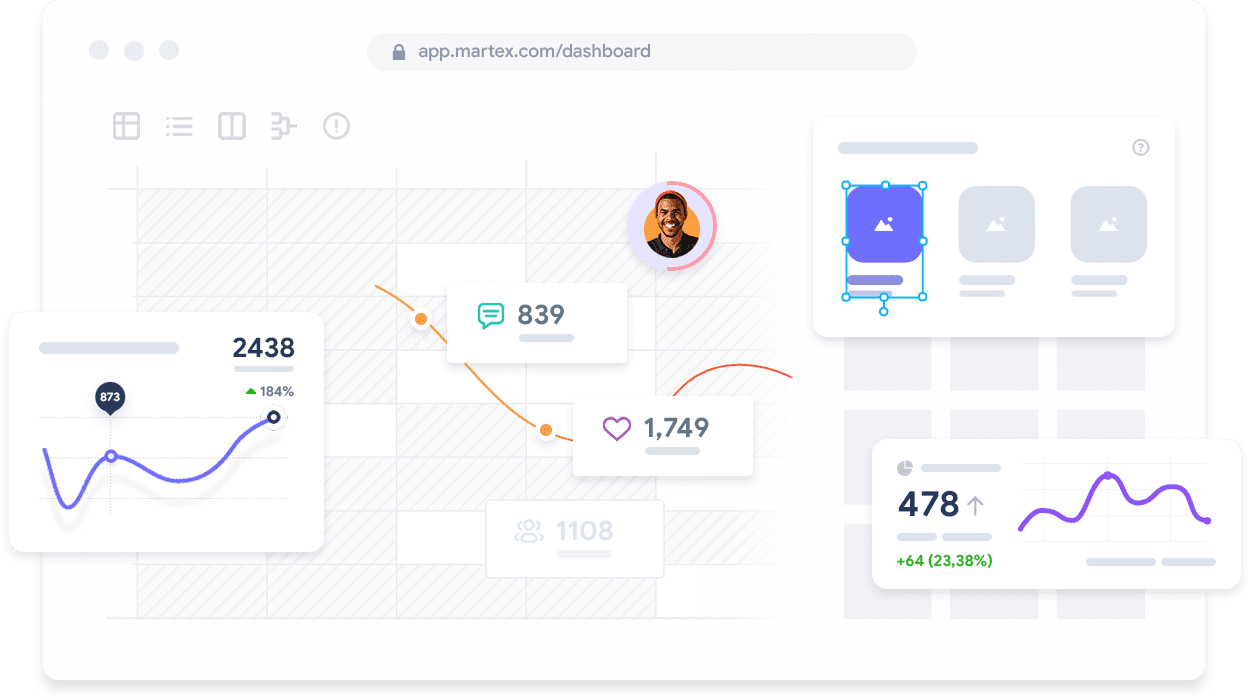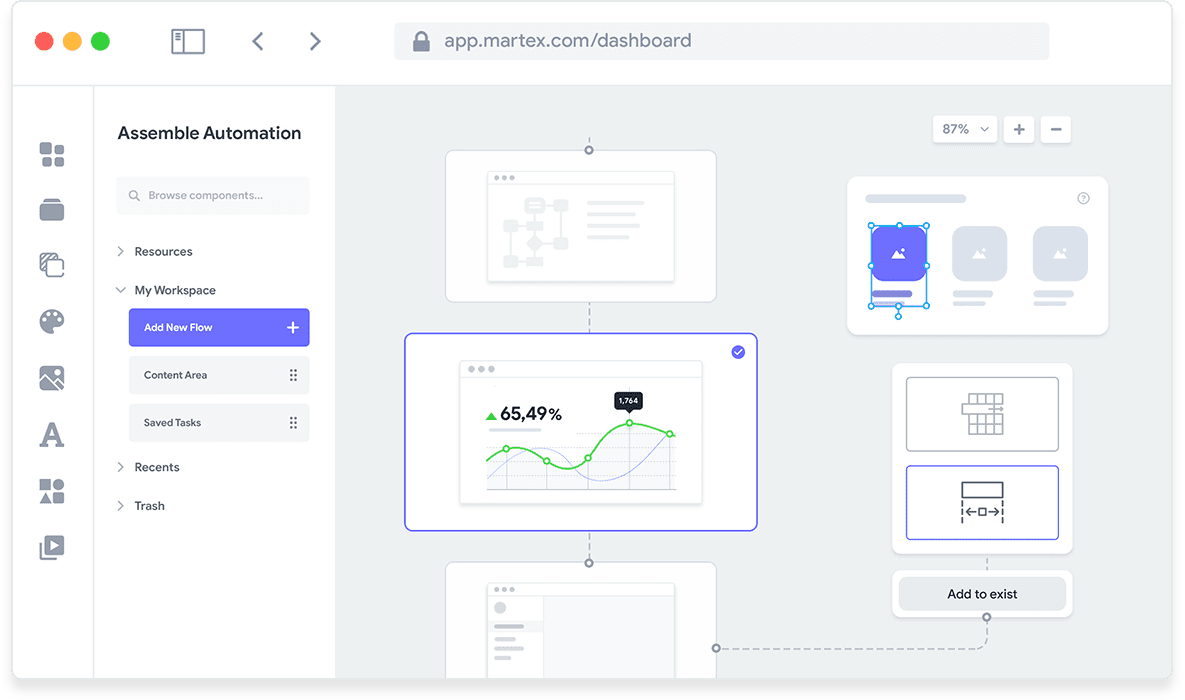
Sales Teams: Accelerate Deal Closure with AI
Empower your sales organization to close deals faster, reduce legal bottlenecks, and identify contract risks early in the sales cycle with intelligent contract analysis that keeps revenue flowing.
Overcoming Sales Cycle Bottlenecks

Sales teams operate in an environment where speed and accuracy are paramount to success. In today's competitive marketplace, the ability to move quickly from initial prospect engagement to signed contract often determines whether deals close successfully or slip away to competitors. Yet traditional contract review processes create significant bottlenecks that can derail promising opportunities and frustrate both sales professionals and their prospects.
The tension between sales urgency and legal diligence represents one of the most persistent challenges in modern business operations. Sales teams understand that every day of delay increases the risk of deal failure, whether due to changing customer priorities, competitive pressures, or simple momentum loss. Meanwhile, legal teams recognize that rushing through contract analysis can expose organizations to significant risks that far outweigh the value of any individual deal.
This dynamic creates a fundamental misalignment between revenue generation objectives and risk management requirements. Sales professionals often view legal review as an obstacle to overcome rather than a value-adding process, while legal teams may perceive sales pressure as compromising their ability to provide thorough analysis and protection. The result is often suboptimal outcomes for both functions and the organization as a whole.
AI-powered contract review bridges this gap by enabling rapid, comprehensive analysis that satisfies both sales velocity requirements and legal quality standards. By providing instant insights into contract terms, risks, and negotiation opportunities, AI technology transforms contract review from a bottleneck into a competitive advantage that actually accelerates deal closure while maintaining appropriate risk management.
Accelerated Sales Cycles

The speed of contract processing directly impacts sales performance metrics across multiple dimensions. Faster contract review enables shorter sales cycles, higher close rates, and improved customer satisfaction. More importantly, it allows sales teams to pursue larger volumes of opportunities without being constrained by legal processing capacity limitations.
Real-Time Contract Analysis
AI systems can analyze contracts in real-time during sales conversations, enabling immediate identification of potential issues or opportunities. Sales professionals can address concerns proactively rather than discovering problems weeks later during formal legal review. This real-time capability transforms contract discussions from reactive problem-solving sessions into strategic negotiation opportunities.
The ability to provide immediate feedback during customer meetings demonstrates professionalism and preparedness that differentiates sales organizations from competitors who require extended review periods. Customers appreciate working with vendors who can respond quickly to their concerns and requirements without compromising quality or attention to detail.
Parallel Processing Capabilities
Rather than processing contracts sequentially through traditional review queues, AI enables parallel analysis of multiple agreements simultaneously. This capability is particularly valuable for complex deals involving master agreements, statements of work, service level agreements, and other interconnected documents that must be reviewed comprehensively.
Sales teams can submit entire contract portfolios for analysis and receive comprehensive feedback on all documents within hours rather than weeks. This acceleration is often the difference between closing deals within quarterly targets and missing revenue projections due to processing delays.
Automated Approval Workflows
AI analysis can automatically categorize contracts based on risk levels and complexity, enabling automated approval workflows for low-risk agreements while ensuring that complex or high-value contracts receive appropriate attention. This intelligent routing reduces the time required for routine agreements while maintaining rigorous oversight for significant transactions.
Early Risk Identification and Mitigation

Successful sales organizations understand that identifying and addressing risks early in the sales cycle is far more effective than discovering problems during final contract negotiations. Early risk identification enables proactive problem-solving, alternative structure development, and customer education that can preserve deals that might otherwise fail due to last-minute complications.
Proactive Issue Detection
AI analysis identifies potential contract issues immediately upon document submission, enabling sales teams to address concerns before they become obstacles to deal closure. Rather than waiting for legal teams to identify problems during formal review processes, sales professionals can work with customers to resolve issues while negotiation momentum remains strong.
This proactive approach prevents the common scenario where deals stall in final legal review due to issues that could have been addressed earlier in the sales process. Early identification also enables more creative problem-solving since there is time to develop alternative approaches rather than rushing to find quick fixes under deadline pressure.
Competitive Intelligence Integration
AI systems can compare proposed contract terms against market standards and competitive benchmarks, providing sales teams with valuable insights for positioning and negotiation. Understanding how customer demands compare to industry norms enables more effective negotiation strategies and helps justify pricing and terms decisions.
This competitive intelligence also helps sales teams identify opportunities where customers may be requesting terms that are more favorable than necessary, creating opportunities for improved deal economics without compromising customer relationships.
Risk-Adjusted Forecasting
Contract analysis provides valuable data for improving sales forecasting accuracy by identifying deals that may face legal or commercial obstacles. Sales managers can adjust pipeline probabilities based on contract complexity and risk factors, leading to more accurate revenue predictions and better resource allocation decisions.
Enhanced Customer Experience

Modern B2B customers expect vendor interactions to be efficient, transparent, and professional throughout the entire sales and contracting process. Organizations that provide superior contracting experiences often gain competitive advantages that extend far beyond individual transactions, building customer relationships that generate long-term value through renewals, expansions, and referrals.
Transparent Communication
AI-generated contract summaries and risk assessments enable sales teams to communicate clearly about contract implications without requiring customers to interpret complex legal language. This transparency builds trust and confidence while reducing the likelihood of misunderstandings that can complicate implementation or renewal discussions.
Customers appreciate working with vendors who can explain contract terms clearly and provide straightforward answers to questions about rights, obligations, and risk allocation. This enhanced communication capability differentiates professional sales organizations from competitors who cannot provide immediate, accurate responses to customer inquiries.
Reduced Administrative Burden
AI-powered contract review reduces the administrative burden on customer legal and procurement teams by providing comprehensive analysis and documentation that facilitates their internal approval processes. Rather than requiring customers to conduct extensive independent analysis, vendors can provide detailed summaries and risk assessments that accelerate customer decision-making.
This reduction in customer effort is particularly valuable for smaller organizations that may lack extensive legal resources or for larger organizations seeking to streamline their vendor management processes. Vendors who reduce customer administrative burden often achieve preferred vendor status and enhanced partnership opportunities.
Consistent Service Quality
AI ensures consistent quality and thoroughness in contract analysis regardless of which sales representative handles the transaction or when the analysis occurs. This consistency builds customer confidence in the vendor's capabilities and reduces variability in customer experience that can damage brand reputation and relationship quality.
Strategic Sales Enablement

Beyond operational efficiency improvements, AI-powered contract review provides strategic advantages that enhance sales team effectiveness and organizational competitiveness. These advantages compound over time as organizations build capabilities and insights that differentiate their approach to customer engagement and relationship management.
Data-Driven Negotiation Strategies
AI analysis generates valuable data about customer negotiation patterns, industry standard terms, and successful deal structures that can inform future sales strategies. Sales teams can leverage this intelligence to improve negotiation outcomes and develop more effective positioning for similar opportunities.
Understanding which terms customers typically accept or reject enables sales teams to structure initial proposals more effectively, reducing negotiation cycles and improving close rates. This data-driven approach to sales strategy development provides competitive advantages that improve over time as more data becomes available.
Cross-Functional Collaboration
AI-powered contract review improves collaboration between sales, legal, and other functional teams by providing common analytical frameworks and shared understanding of contract implications. Rather than operating in silos with different perspectives on risk and opportunity, teams can work together more effectively toward shared objectives.
This improved collaboration leads to better deal structures, more effective risk management, and enhanced customer value propositions that benefit all stakeholders. Sales teams gain access to legal expertise and risk insights, while legal teams better understand commercial objectives and customer requirements.
Scalable Growth Platform
As organizations grow and pursue larger opportunities or new markets, AI-powered contract review provides scalable infrastructure that supports expansion without proportional increases in legal and administrative overhead. This scalability is particularly valuable for organizations pursuing aggressive growth strategies or entering new geographic markets with different legal requirements.
The technology also enables smaller sales teams to handle larger transaction volumes and more complex deals, providing growth capacity that supports revenue expansion without requiring proportional increases in sales personnel or support resources. This operational leverage is particularly valuable in competitive markets where growth efficiency determines long-term success.
